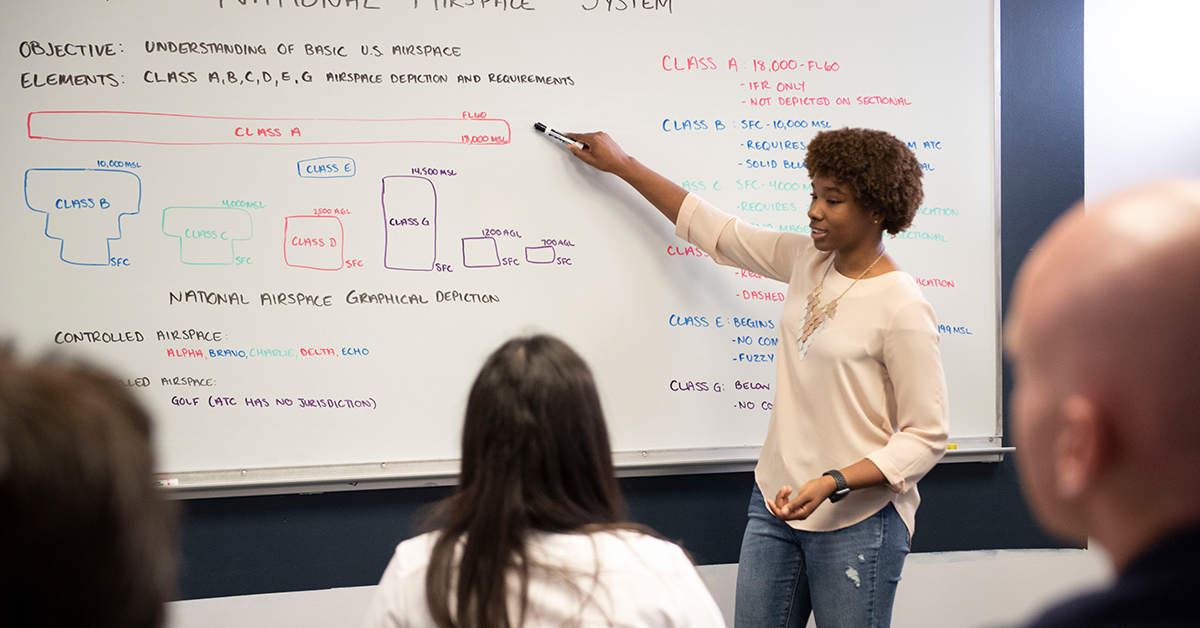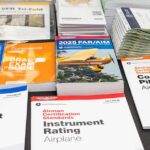By: Brad Morrison
The best way to learn is to do, and do, and do again. Practice makes perfect are well-known words we all grew up on. And of course, this phrase absolutely applies to flying.
I recently ran into an old CFI student of mine from many years ago. We spent some time catching up since his graduation and talked about his flying experience and the hours he was earning. His goal was always to fly for one of the major airlines. After he graduated his CFI-A he had gotten out of flight instructing and got a job flying pipeline patrol for the past five years. Pipeline patrol is basically flying low and slow, all VFR. A pipeline pilot flies at low altitude over power lines or pipelines looking for damage, vandalism and other problems. While this type of flying is great for jobs like shuttling offshore workers, flying firefighting bombers, banner towing or aerial surveys it is not good for trying to get into the airlines.
The reason he reached out to me was he was looking to make the transition and in spite of all the flying he did over the last five years he didn’t feel he was ready. While his stick and rudder skills were solid due to the nature of flying pipeline, his instrument skills had atrophied to the point where they were nearly non-existent. In addition, his actual aviation knowledge regarding regulations and even some of the basics of communication and navigation had also slipped away.
What my friend realized, as do many others after graduating with a commercial pilot license, there is a reason why airlines look for skills that you gain from teaching as a CFI-I instructor. The reason is, as you teach instrument flying, you become more proficient. You become so proficient that it tends to be second nature and when you are flying for the airlines it’s all about instruments and they are looking for highly proficient pilots.
Flying solo the same loop or the same kind of path without any variables or interacting with others lends itself to be stagnant learning or growth. When you are instructing others and constantly explaining yourself, the aircraft, communications and navigation you have no choice but to learn it inside out and upside down.
Being a Certified Flight Instructor, especially an instrument instructor, hones your skills day in and day out making you the best pilot you can be.
Another main reason how you get your hours prior to applying to the airlines is important is really gaining the knowledge through experience of the fundamentals of flying. As he and I talked, I couldn’t help but think back to when I was studying to be a flight instructor. There is a part in the training devoted to something called the Fundamentals of Instructing or FOI’s (I know all of you CFIs are rolling your eyes at this article right now). In these fundamentals, you learn all the ins and outs of instructing from a more psychological standpoint. Unfortunately while studying the FOI’s, I had little to no experience, so concepts like behaviorism and cognitive theory were truly just a theory. It wasn’t until I started teaching that the FOI’s started to come to life as I saw them play out with each student.
Any time you take yourself away from practicing something, you are likely to lose proficiency in whatever the task is. In the case of your instrument skills, maybe you didn’t go and fly pipeline patrol like my friend, but maybe you have just avoided IFR altogether because you didn’t feel comfortable with it. Or maybe your deficiencies span to more than just your Instrument skills. Maybe you’ve been building your flight hours only doing “fun flights,” you know what I’m referring to. Those flights where you’re not really challenging yourself, where you’re just getting up for the sake of getting up in the air. Whatever your story, know that if you plan on making a career out of flying, your flying skills will be called into question, and when that happens, you will need to be able to deliver the goods, or you may end up missing a great opportunity with that company.
In my experience, as airlines also agree, the best and most prepared candidates for the airlines are those people who on a daily basis practice honing their skills by teaching other people. The quality of the hours you get as an instructor are some of the most valuable you’ll receive. It has been said that you don’t truly understand something until you can successfully teach it to someone else. The great thing about those of you who are at the beginning of your hour-building phase and may be thinking about going to the airlines is that you are at the perfect time in your journey to decide on which route is the most valuable for what you’re trying to accomplish.










